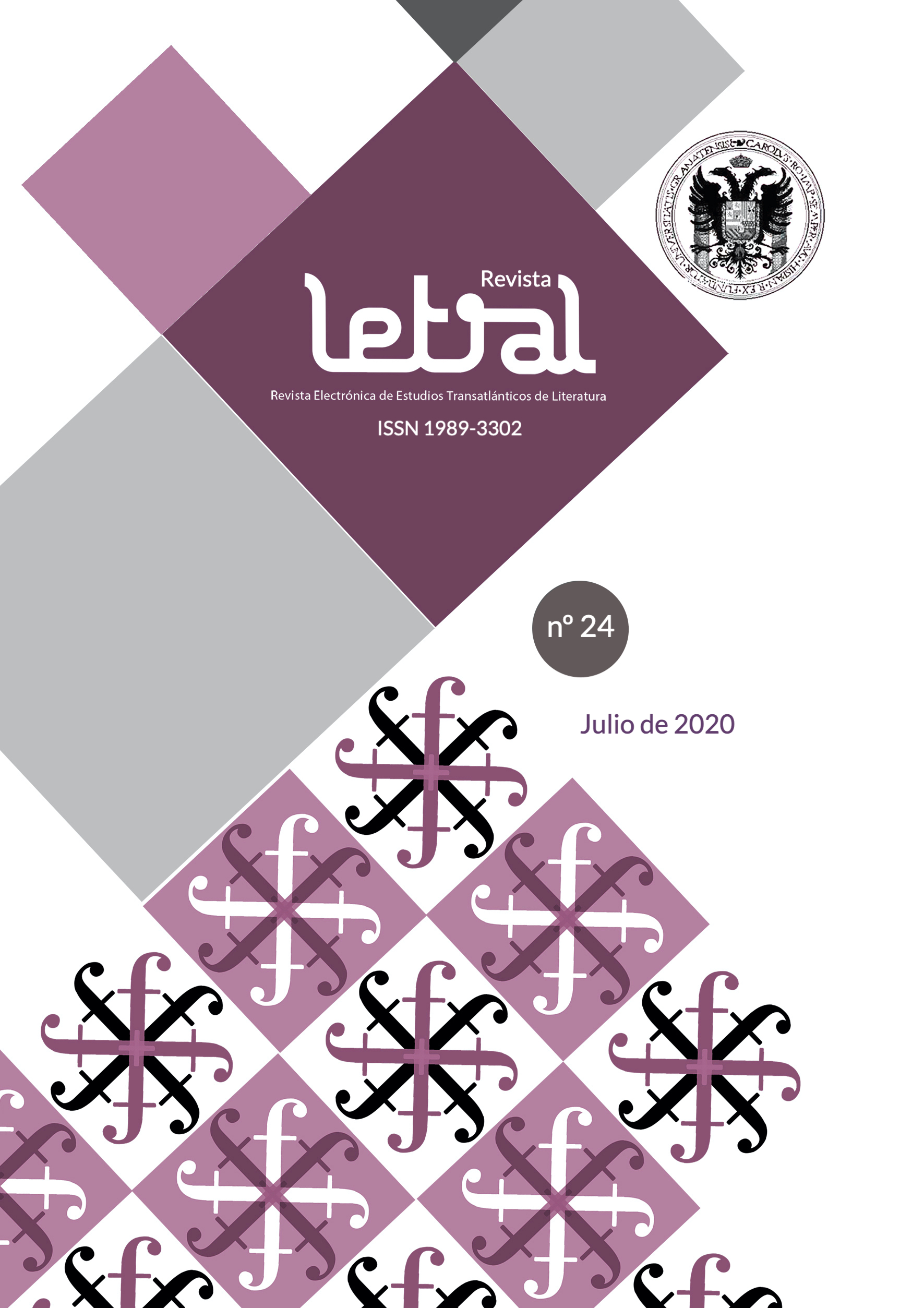“The Eye on the Edge of the Abyss”: Héctor A. Murena’s Philosophy of History Between Europe and Latin America
DOI:
https://doi.org/10.30827/rl.v0i24.15479Keywords:
H. A. Murena, philosophy of history in Latin America, Schiller, Kleist, Argentine essay on national identity, metaphysical banishment.Abstract
This article focuses on Héctor A. Murena’s philosophy of history, as rendered in his essay collection El pecado original de América (1954). It interprets and elaborates on the book’s main topics: parricide, metaphysical banishment, dispossession, geographical displacement, solitude, abyss, and transobjectivity. It recovers the decisive yet overlooked influence of Schiller upon Murena, especially the former’s opposition between naivete and sentimentality. It compares Kleist’s secularization of the biblical narrative of the fall and banishment from Eden with Murena’s own version, arguing that his theorization on Latin American identity bares key elements of the German romantic view on history. Finally, it points out that Murena’s reflections on history are actually centered on Buenos Aires.
Downloads
References
Abrams, M. H. Natural supernaturalism: tradition and revolution in romantic literature. Nueva York, Norton, 1971.
Abraham, Tomás. Pensadores bajos y otros escritos. Buenos Aires, Catálogos, 2000.
Borges, Jorge Luis. Discusión. Buenos Aires, Emecé, 1957.
Cabanchik, Samuel M. “Melancolía, ultranihilismo y metaforicidad: Figuras de la comunidad en la ensayística de Murena”. Figuraciones de la comunidad. El ojo, la carne y la palabra, Samuel Cabanchik y Alejandro Boverio (eds.), Buenos Aires, Colihue, 2014, pp. 161-170.
Cristófalo, Américo. “Murena, un crítico en soledad”. La irrupción de la crítica. Historia crítica de la literatura argentina. Vol. 10, Susana Cella (ed.), Buenos Aires, Emecé Editores, 1999, pp. 101-124.
Djament, Leonora. La vacilación afortunada. H. A. Murena: un intelectual subversivo. Buenos Aires, Colihue, 2007.
———. “Una teoría del lenguaje y del arte en La metáfora y lo sagrado, de H. A. Murena”. Cuadernos del Sur. Letras, no 32-33, 2002-2003, pp. 101-110.
Horkheimer, Max. Crítica de la razón instrumental. Héctor A. Murena y D. J. Vogelmann (trad.), Buenos Aires, Sur, 1969.
Horkheimer, Max y Theodor W. Adorno. Dialéctica del Iluminismo. Héctor A. Murena (trad.), Buenos Aires, Sur, 1969.
King, John. Sur: a study of the Argentine literary journal and its role in the development of a culture, 1931-1970. Cambridge; New York, Cambridge University Press, 1986.
Kleist, Heinrich von. Pentesilea: Tragedia. Alberto Luis Bixio (trad.), Buenos Aires, Sur, 1954.
———. Sobre el teatro de marionetas y otros ensayos de arte y filosofía. Jorge Riechmann (trad.), Madrid, Ediciones Hiperión, 1988.
Lojo, María Rosa. “Murena: una imagen mítica de América”. Revista de la Academia Norteamericana de la Lengua Española (RANLE), no 8, vol.4, 2015, pp. 594-607.
Mattoni, Silvio. “Murena y la exégesis del ensayo como profecía”. Nombres: Revista de Filosofía, no 13-14, 1999, pp. 265-279.
Murena, H. A. “Los parricidas: Edgar Allan Poe”. Realidad. Revista de Ideas, año III, volumen 6, septiembre-diciembre, 1949, pp. 129-153.
———. El pecado original de América. Buenos Aires, Sur, 1954.
———. Homo atomicus: Ensayos. Buenos Aires, Sur, 1961.
———. Ensayos sobre subversión. Buenos Aires, Sur, 1962.
———. El nombre secreto: Ensayos. Caracas, Monte Ávila, 1969.
———. Visiones de Babel. Guillermo Piro (ed.), México, Fondo de Cultura Económica, 2002.
———. Herrschaft. Guillermo Piro (ed.), Buenos Aires, Tantalia, 2006.
———. El pecado original de América. Buenos Aires, Fondo de Cultura Económica, 2006.
———. Los penúltimos días (1949-1950). Patricia Esteban (ed.), Valencia, Pre-Textos, 2012.
Ocampo, Victoria. Testimonios; primera serie, 1920-1934. Buenos Aires, Sur, 1985.
Schiller, Friedrich. Sobre la gracia y la dignidad. Sobre poesía ingenua y poesía sentimental. Y una polémica: Kant, Schiller, Goethe y Hegel. Barcelona, Icaria, 1985.
Published
How to Cite
Issue
Section
License
Revista Letral is an open access journal under a Creative Commons Atribución-NoComercial 4.0 license.
The works published in this journal may be reused, distributed and publicly presented for non-commercial purposes, provided that: cite the authorship and the original source of the publication (journal, publisher and URL of the work).
We strongly recommended you to share our published articles in social and scientific networks, institutional and public repositories, personal or institutional websites, blogs, Google Scholar, ORCID, ResearchID, ScopusID, etc.
The journal allow the author(s) to hold the copyright and to retain publishing rights without restrictions.
We are completely free, both for readers and authors.














